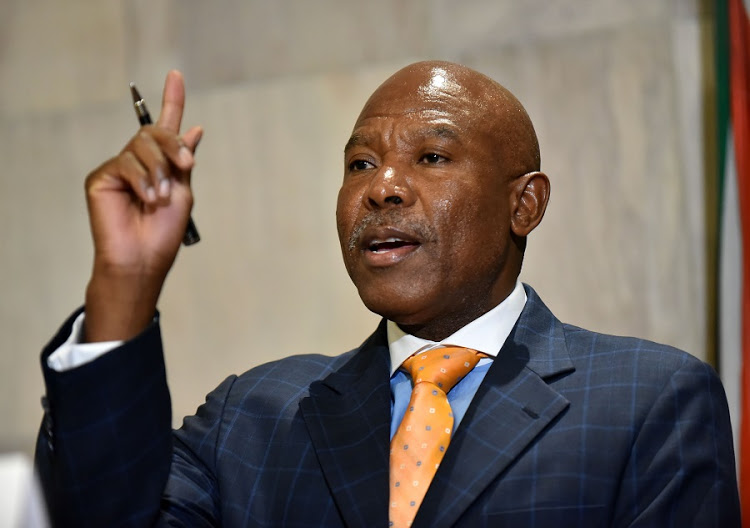Lesetja Kganyago, South Africa’s central bank governor said Thursday that the country’s economy faces major challenges, and the government needs to win back the confidence of businesses and investors by tackling policy uncertainty and corruption.
Kganyago said in a speech at an investor conference in New York that weak business confidence had shaved an estimated one percentage point off South Africa’s economic growth last year.

He said that the central bank would like to see inflation expectations anchored at around 4.5 percent, compared with 5.1 percent now. The volatile rand currency is the biggest risk to inflation forecasts, Kganyago said.
“Inflation today in South Africa is the target. The highest it should be in terms of our forecast is 5.2 percent,” he said in a subsequent interview with Reuters.
“That gives us room within the inflation target band…Inflation could rise but would remain within our inflation target,” Kganyago said.
The Governor of the South African Reserve Bank deflected questions on where he thought interest rates would move, saying there is no target.
The central bank kept its benchmark repo rate at 6.75 percent on Sept. 21, defying expectations at the time of a cut based upon easing inflation pressures and a sluggish recovery from a recession in the first half of the year.
“Everybody talks about are you close to neutral or off neutral? When the world over, nobody knows what neutral is because the world as we know it is different from the world we knew before the global financial crisis. Everybody is trying to find neutral,” he said.
The central banker, in his position since 2014, said that inflation would remain in the 3 to 6 percent target zone for the next two years.
“We are currently at 4.8 percent and the outlook is that inflation will average 5 percent this year. But we still expect to reach the bottom of 4.6 percent in the first quarter of next year. Over the policy horizon of 2018 and 2019, the highest inflation will be is 5.2 percent for the year,” he said.
With inflation remaining subdued, Kganyago also highlighted the improvements in the narrowing current account deficit. He said indications are that for the third quarter it should remain, at worst in the 2 percent area.
”And at best could actually decline as low as 1 percent.








